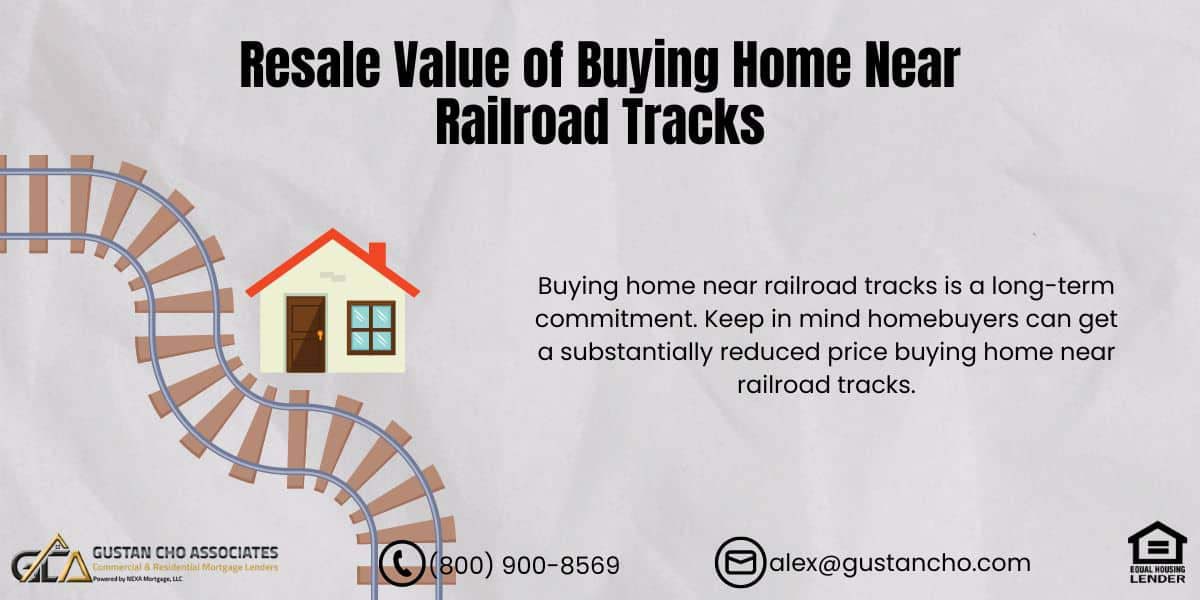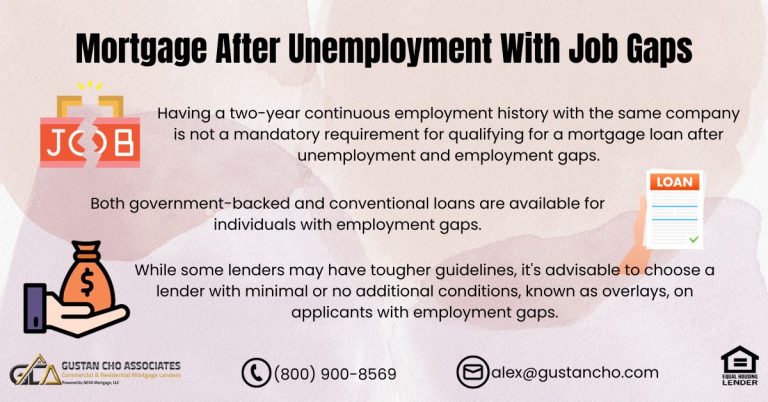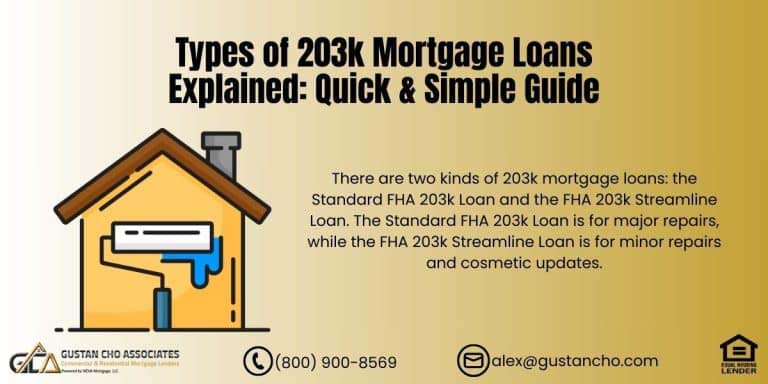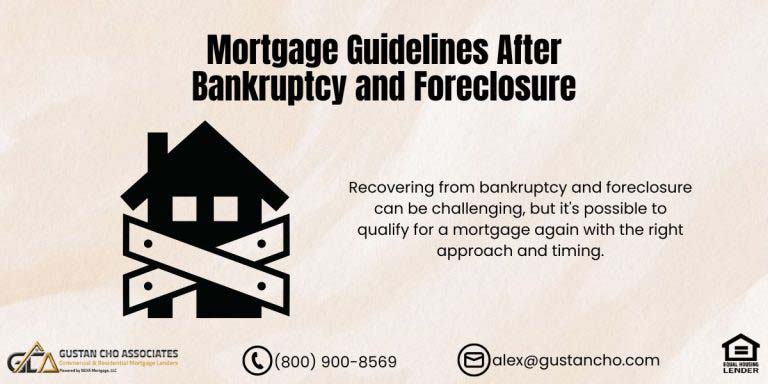Buying Home Near Railroad Tracks: Bargain or Bad Investment in 2025?
Buying a home near railroad tracks can stir up mixed emotions. On one hand, the price tag is enticing. On the other hand, questions about noise, safety, and resale value can give buyers pause. In today’s competitive housing market, understanding the pros and cons of buying home near railroad tracks is more important than ever.
This article dives into everything you need to know to make an informed decision—and get the right mortgage with Gustan Cho Associates.
Why Consider Buying Home Near Railroad Tracks?
When shopping for a home, affordability is often at the top. Homes near railroad tracks are typically priced 10% to 20% lower than comparable properties. For buyers on a budget or facing inventory shortages, these homes can seem like the perfect solution. Many builders buy land in less-than-desirable locations such as by railroad tracks, facing busy roads, and homes near apartment communities and commercial zones.
But why are these homes cheaper? The primary reasons include:
- Noise Pollution: Trains passing by create noise, disturbing your peace, especially at night.
- Safety Concerns: Proximity to tracks may pose risks for children, pets, and even your property.
- Resale Challenges: Homes near tracks often take longer to sell and fetch lower prices.
Still, some buyers find that the savings outweigh these drawbacks. In fact, many families adapt to the noise over time and even enjoy the unique character of living near tracks. If you’re considering this option, keep reading to weigh the benefits and risks.
Clarify Your Doubts With Our Loan Officers And Finalize Your Mortgage Loans
Apply Online And Get recommendations From Loan Experts
The Benefits of Buying Home Near Railroad Tracks
- Affordability: The biggest advantage of buying home near railroad tracks is the price. Homes near railroad tracks are often more affordable than those in quieter neighborhoods. This can make homeownership accessible to first-time buyers or those looking to upgrade to a larger home.
- Convenience: Commuting by train is a breeze if you live near a train station. This can save both time and money for city dwellers or those working in urban centers.
- Unique Features: Many homes near tracks have distinct architectural designs or larger lots. These features can add charm and appeal that offset the proximity to the tracks.
The Drawbacks of Buying Home Near Railroad Tracks
- Noise Pollution: Train horns, engine sounds, and vibrations are part of daily life. Depending on their frequency and time of day, these noises can disrupt sleep or relaxation. While modern soundproofing materials can reduce noise levels, it’s something to consider seriously.
- Safety Risks: Being near railway tracks can raise significant safety issues, especially for households with young children or pets. While train accidents are infrequent, they can have devastating consequences when they do happen.
- Resale Value: One of the biggest downsides of buying home near railroad tracks is that it can hurt the resale value. Homes close to the tracks, usually within 1,000 feet, sell for about 10% less than homes farther away. Plus, it might take longer to find a buyer because many people are hesitant about living so close to the trains.
How to Decide if Buying Home Near Railroad Tracks Is Right for You
Making this decision requires balancing the pros and cons with your lifestyle and long-term goals. Ask yourself:
- How sensitive are you to noise?
- Are you willing to invest in noise-reducing features like thermal windows or added insulation?
- Do you plan to stay in the home long-term, or are you concerned about resale value?
- How often do trains pass through, and what’s the noise level like during those times?
By answering these questions, you can better determine if buying home near railroad tracks aligns with your needs.
Tips for Minimizing Noise and Vibration
If you’re set on buying home near railroad tracks, here are some tips to make your experience more comfortable:
- Invest in Soundproofing: Upgrading windows and doors to soundproof options can significantly reduce train noise.
- Landscaping: Planting trees or building fences can help block some of the sound.
- Structural Upgrades: Reinforce your home’s foundation and walls to reduce the impact of vibrations.
- Location Matters: Homes farther from the tracks or with natural barriers like hills tend to experience less noise and vibration.
Health and Safety Considerations
In 2025, buyers are increasingly focused on health and safety. Living near railroad tracks can come with potential risks, including:
- Noise-Related Health Issues: Long-term exposure to loud noises may contribute to hearing loss, sleep disorders, and even cardiovascular problems.
- Diesel Exhaust: Homes near busy freight lines can be exposed to diesel fumes, which can affect respiratory health. Modern trains are becoming more environmentally friendly, but this is still a concern.
- Structural Damage: Vibrations from passing trains can impact the foundation and structure of your home over time, especially in older properties.
Resale Value and Appreciation Trends
In today’s market, resale value is a key consideration. While homes near railroad tracks may not appreciate as quickly as others, they’re not necessarily a bad investment. Factors that can offset the location include:
- Unique Features: Homes with standout features like large yards, scenic views, or modern upgrades can attract buyers despite the proximity to tracks.
- Market Demand: Even homes near railroad tracks can sell quickly in areas with high demand and low inventory.
- Improvements: Adding noise-reducing features and maintaining the property can enhance its appeal.
Real Stories from Homeowners
Michael Gracz, a loan officer at Gustan Cho Associates, shared his experience living near railroad tracks for nearly a decade:
At first, the noise was tough to handle. But over time, my family got used to it. We focused on the benefits—a lower mortgage and a bigger yard—and made upgrades to minimize the noise. When we sold the house, it took a little longer, but we still made a profit.
Similarly, Alex Carlucci, another member of the team, lived near tracks in New York before moving to Nevada:
The key is to weigh the savings against the drawbacks. For us, the affordability made it worth it, and we adapted quickly.
These real-life examples show that buying home near railroad tracks isn’t a one-size-fits-all decision.
Why Work with Gustan Cho Associates?
At Gustan Cho Associates, we understand that every homebuyer has unique needs. If you’re thinking about buying home near railroad tracks or looking into different alternatives, our team is here to assist you in the entire mortgage process. We provide a range of mortgage options, including:
- Non-QM Loans: Perfect for buyers with unique income situations.
- Bank Statement Loans: Ideal for self-employed individuals.
- FHA Loans: FHA Loans are a great option for people looking to buy their first home, especially if you’re worried about saving up for a big down payment. These loans let you put down a smaller amount, making it easier to buy a house. If you’re considering buying a home near railroad tracks, FHA loans could help make that dream more affordable. They offer a way for first-time buyers to find a suitable home without breaking the bank on the down payment.
- VA Loans: Buying home near railroad tracks? VA loans provide fantastic benefits for our veterans and active-duty service members, making homeownership even more attainable and exciting. These loans make it easier and more affordable to purchase a home. With lower or no down payments and no need for private mortgage insurance, they can help you save money. Plus, the loan process is typically simpler and faster. If you want to settle down close to those tracks, these benefits can make a difference in your home-buying journey.
- Jumbo Loans: Jumbo Mortgages is no longer for perfect credit score borrowers with a 25% down payment.
Our goal is to help you find the right home and the right loan. Contact us today to learn more!
Final Thoughts on Buying Home Near Railroad Tracks
Buying home near railroad tracks is a decision that requires careful thought. While the affordability is appealing, it’s important to consider the noise, safety, and resale value. By conducting thorough research, enhancing your space with noise-reducing improvements, and collaborating with seasoned experts such as the team at Gustan Cho Associates, you can transform what may seem like a setback into a wise financial opportunity.
Ready to explore your options? Apply online or contact us at 800-900-8569 or gcho@gustancho.com today to speak with one of our loan experts. Let us help you find the perfect home—on your terms.
Frequently Asked Questions About Buying Home Near Railroad Tracks:
Q: Why are Homes Near Railroad Tracks Cheaper?
A: Homes near railroad tracks are typically priced 10% to 20% lower because of noise, safety concerns, and the perception that resale might be more challenging.
Q: Is Buying Home Near Railroad Tracks a Good Investment?
A: The decision ultimately depends on what matters most to you. If keeping costs low is your primary focus, then it could be a suitable option. Nevertheless, it’s important to consider the future resale value and any possible noise concerns that may arise.
Q: Can You Reduce the Noise When Buying Home Near Railroad Tracks?
A: Yes, you can invest in soundproof windows, insulation, and landscaping, such as trees or fences, to minimize train noise.
Q: Are Homes Near Railroad Tracks Safe for Families?
A: While generally safe, proximity to tracks can pose risks for children and pets. Proper fencing and supervision are essential to ensure safety.
Q: How does Buying Home Near Railroad Tracks Affect Resale Value?
A: Homes near tracks may sell for less and take longer to find a buyer. On average, homes within 1,000 feet of railroad tracks experience about a 10% reduction in value.
Q: What are the Health Risks of Living Near Train Tracks?
A: Long-term exposure to noise pollution can cause sleep issues, stress, and even cardiovascular problems. Diesel exhaust from trains may also affect respiratory health.
Q: What Should I Consider Before Buying Home Near Railroad Tracks?
A: Think about your tolerance for noise, the safety of children or pets, the frequency of train activity, and how close the home is to the tracks.
Q: Do Modern Trains Make Less Noise Than Older Ones?
A: Yes, modern commuter and electric trains produce less noise than older diesel-powered freight trains.
Q: Are There Any Benefits to Buying Home Near Railroad Tracks?
A: In addition to affordability, homes near tracks may have unique features like larger lots, distinct designs, or convenient access to train stations.
Q: How Can Gustan Cho Associates Help with Buying Home Near Railroad Tracks?
A: Gustan Cho Associates offers a range of mortgage options, including FHA, VA, and Non-QM loans, to help buyers finance homes near railroad tracks with competitive rates and expert guidance.










